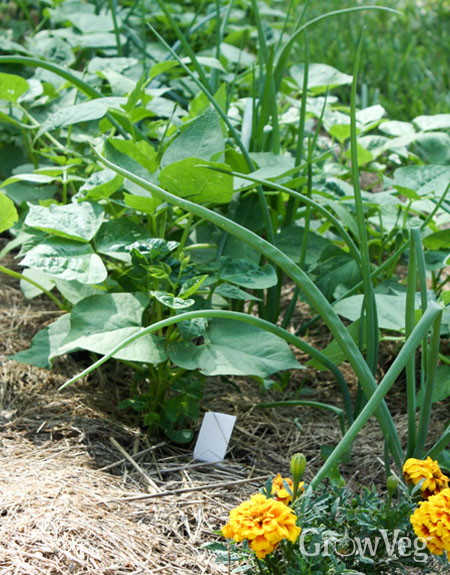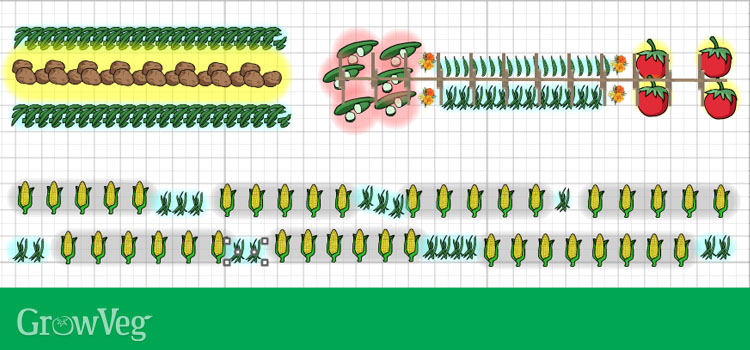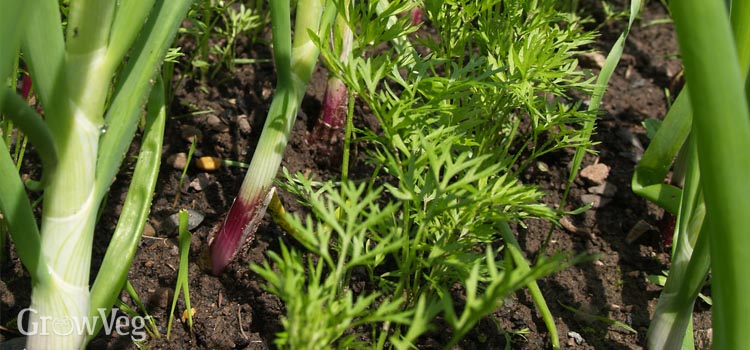The Ultimate Guide To Companion Planting For Broad Beans
The Ultimate Guide to Companion Planting for Broad Beans
Broad beans are a hardy, versatile vegetable that can be grown in a variety of climates. They are also a nitrogen-fixing plant, which means they can help to improve the soil quality in your garden. Companion planting is a great way to boost the productivity of your broad bean crop and deter pests and diseases.
In this guide, we will discuss the best companion plants for broad beans, as well as some tips on how to plant them together. We will also cover some of the benefits of companion planting, and why it is a good idea to use this technique in your garden.
What are Companion Plants?
Companion planting is a gardening technique that involves planting different types of plants together in order to benefit each other. Some plants can help to attract beneficial insects, while others can deter pests. Some plants can also help to improve the soil quality, or provide shade or support for other plants.
There are many different types of companion plants, and the best combinations will vary depending on the specific plants you are growing and the climate in your area. However, there are some general principles that can be followed when companion planting broad beans.
The Best Companion Plants for Broad Beans
Some of the best companion plants for broad beans include:
- Carrots: Carrots can help to repel carrot fly, a common pest of broad beans.
- Cabbages: Cabbages can help to deter cabbage root fly, another common pest of broad beans.
- Celery: Celery can help to attract beneficial insects, such as ladybugs and hoverflies, which can help to control pests.
- Cucumbers: Cucumbers can help to shade the roots of broad beans, which can help to prevent them from drying out.
- Lettuce: Lettuce can help to attract beneficial insects, such as ladybugs and hoverflies, which can help to control pests.
- Melons: Melons can help to attract beneficial insects, such as ladybugs and hoverflies, which can help to control pests.
- Potatoes: Potatoes can help to repel potato beetle, a common pest of broad beans.
- Radishes: Radishes can help to attract beneficial insects, such as ladybugs and hoverflies, which can help to control pests.
- Spinach: Spinach can help to attract beneficial insects, such as ladybugs and hoverflies, which can help to control pests.
- Squash: Squash can help to shade the roots of broad beans, which can help to prevent them from drying out.
Tips for Companion Planting Broad Beans
When companion planting broad beans, it is important to consider the size and growth habit of the plants you are planting together. For example, broad beans are tall plants that need plenty of space to grow. You should not plant them next to short, slow-growing plants, as they will shade them out.
It is also important to plant broad beans in well-drained soil. They are susceptible to root rot, so it is important to avoid planting them in wet areas.
If you are planting broad beans in a container, it is important to choose a pot that is at least 12 inches deep. This will give the roots enough room to grow.
Benefits of Companion Planting
There are many benefits to companion planting, including:
- Increased crop productivity: Companion planting can help to increase the yield of your crops. This is because the different plants can help each other to thrive. For example, some plants can attract beneficial insects that can help to control pests, while others can improve the soil quality.
- Reduced pest and disease problems: Companion planting can help to reduce the incidence of pests and diseases. This is because some plants can deter pests, while others can help to improve the health of your plants.
- Improved soil quality: Companion planting can help to improve the soil quality in your garden. This is because some plants can fix nitrogen in the soil, while others can help to break down organic matter.
- Increased biodiversity: Companion planting can help to increase the biodiversity in your garden. This is because you will be planting a variety of different plants, which will attract a variety of different insects and animals.
Conclusion
Companion planting is a great way to boost the productivity of your broad bean crop and deter pests and diseases. By planting the right companion plants together, you can create a thriving garden that is beneficial for both you and the environment.
Broad beans are a delicious and versatile vegetable that can be enjoyed in many different ways. But did you know that companion planting can help you grow healthier and more productive broad beans?
Companion planting is the practice of planting certain types of plants together to benefit each other. For example, broad beans are nitrogen-fixing plants, which means they add nitrogen to the soil. This can benefit other plants that need nitrogen, such as tomatoes, potatoes, and cucumbers.
Some other good companion plants for broad beans include:
- Carrots: Carrots help to repel pests that can damage broad beans, such as carrot fly and cabbage moth.
- Cabbage: Cabbage helps to deter aphids, which can be a problem for broad beans.
- Lettuce: Lettuce helps to suppress weeds, which can compete with broad beans for nutrients and water.
- Marigolds: Marigolds help to repel pests such as aphids, beetles, and nematodes.
- Peas: Peas are also nitrogen-fixing plants, so they can help to improve the soil for broad beans.
If you're interested in learning more about companion planting for broad beans, I recommend checking out Garden Wiki. This website has a wealth of information on the topic, including a list of recommended companion plants, tips on how to plant them together, and more.
FAQ of companion planting for broad beans
- What are good companion plants for broad beans?
Broad beans are legumes, which means they fix nitrogen in the soil. This makes them beneficial to other plants in the garden, as nitrogen is an essential nutrient for plant growth. Some good companion plants for broad beans include:
* Carrots
* Lettuce
* Marigolds
* Celery
* Peas
* Potatoes
* Parsnip
* Cabbage
* Parsley
* Eggplant
- What are bad companion plants for broad beans?
Some plants should not be planted near broad beans, as they can compete for nutrients or water, or attract pests and diseases. These include:
* Beetroot
* Onions and garlic
* Kohl rabi
* Sunflowers
* Jerusalem artichokes
- When should I plant broad beans with companion plants?
Broad beans can be planted with companion plants at the same time. However, it is important to space the plants appropriately, so that they have enough room to grow.
- How do companion plants benefit broad beans?
Companion plants can benefit broad beans in a number of ways, including:
*Attracting beneficial insects, such as ladybugs and hoverflies, which help to control pests.
*Distracting pests, such as aphids and cabbage moths, away from broad beans.
*Providing shade and shelter from the wind, which can help to protect broad beans from frost and other weather damage.
*Improving the soil structure and drainage, which can help to promote healthy root growth.
*Adding nutrients to the soil, which can help to improve the growth and yield of broad beans.
- What are some tips for companion planting with broad beans?
Here are some tips for companion planting with broad beans:
* Choose companion plants that have similar growing requirements, such as sun exposure, soil type, and water needs.
* Space the plants appropriately, so that they have enough room to grow.
* Monitor the plants closely for pests and diseases, and take steps to control them if necessary.
* Experiment with different companion plants to find the ones that work best in your garden.
Image of companion planting for broad beans
5 different images of companion planting for broad beans from Pinterest:
- Broad beans and onions. Broad beans and onions are a classic companion planting combination. The onions help to repel pests from the broad beans, and the broad beans help to fix nitrogen in the soil, which benefits the onions.

- Broad beans and lettuce. Lettuce is another good companion plant for broad beans. The lettuce provides shade for the broad beans' roots, which helps to keep them cool and moist.

- Broad beans and carrots. Carrots and broad beans are also compatible companion plants. The carrots help to improve the drainage of the soil, which benefits the broad beans.

- Broad beans and spinach. Spinach and broad beans are a good combination because they have different nutrient requirements. The spinach needs more nitrogen, while the broad beans fix nitrogen in the soil.

- Broad beans and peas. Broad beans and peas are both legumes, which means that they fix nitrogen in the soil. This makes them a good companion planting combination, as they can help to improve the fertility of the soil for each other.

Post a Comment for "The Ultimate Guide To Companion Planting For Broad Beans"